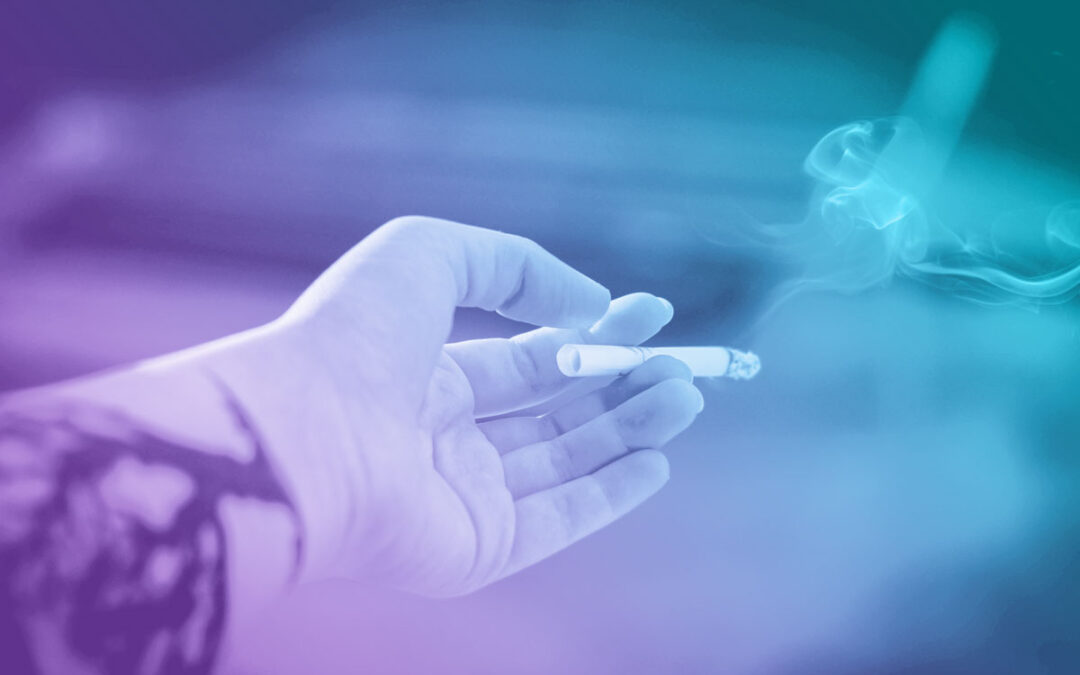Why Do Most Drug Addicts and Alcoholics Tend To Also Be Smokers?
Cigarettes contain nicotine, which is a powerful addictive substance in its own right. It can be extremely difficult for anyone to quit let alone someone suffering from alcoholism and/or drug addiction who also smokes. There are many reasons why quitting smoking is so difficult. When someone smokes, they’re getting a regular dose of nicotine, which can be tough to break away from. Smoking is also often a social activity. People might smoke with friends or family members, making it hard to quit because they feel like they’re missing out on something.
Quitting smoking can be stressful. There are a number of side effects that can occur when someone quits smoking. These can include irritability, anxiety, trouble sleeping, and weight gain. Additionally, some people may experience withdrawal symptoms, such as headaches, nausea, or cravings for nicotine. These side effects are only temporary and eventually go away. That said, these side effects pale in comparison to the side effects and withdrawal symptoms someone in active addiction to alcohol and/or drugs feels in the absence of these substances. Withdrawal from alcohol and/or drugs in the absence of medical detox or alcohol detox can be fatal.
There are a few reasons why drug addicts tend to be smokers. First, Smoking cigarettes can help to mask the smell of drugs on a person’s clothing or body. This can be helpful if a person is trying to avoid detection by authorities or others who may not approve of their drug use. Second, smoking can help to reduce the cravings for drugs. This is because nicotine has a calming and relaxing effect on the brain, which can help to ease the withdrawal symptoms that often accompany quitting drugs. Finally, many people who start using drugs do so in social situations where smoking is already prevalent. This makes it more likely that they will continue to smoke even after they become addicted to drugs.
Alcoholics tend to be smokers for similar reasons as those addicted to drugs. Smoking can help reduce the negative effects of withdrawal from alcohol. It can also help hide the smell of alcohol on a person’s breath. Additionally, smoking can help make drinking more socially acceptable by providing a way for people to bond over their shared habit. Many people who abuse alcohol also have mental health disorders that make them more likely to self-medicate with nicotine. The act of smoking releases dopamine in the brain, which alcoholics are seeking to recreate through drinking. It is clear that smoking and alcoholism often go hand-in-hand.
It’s generally not recommended to quit smoking and doing drugs at the same time, as it can be difficult to manage both addictions simultaneously. However, if you’re determined to quit both habits, there are some things you can do to increase your chances of success. First, make sure you have a solid support system in place—this could include family, friends, and if at all possible, a professional counselor and medical professional trained in addiction. It’s also important to have a plan for dealing with cravings and triggers; for instance, you may want to keep a stash of healthy snacks on hand to combat drug-related hunger pangs. Finally, remember that it’s okay to take things one day at a time—quitting two addictive habits is no small feat, so cut yourself some slack.
Should I quit drinking and smoking at the same time? This is a difficult question to answer. On one hand, it may be easier to quit both smoking and drinking at the same time. This way, you can avoid potential triggers that may cause you to relapse on one habit while trying to quit the other. On the other hand, quitting both habits at the same time may more difficult than quitting one at a time. As is the case with those addicted to drugs and smoking, make sure you have a solid support system in place including a professional counselor and medical professional trained in addiction.
Quitting smoking is definitely not easy and it can be even more difficult for those addicted to alcohol and or drugs. It is possible with the right support and motivation and the help of family, friends, and medical professionals. We usually recommend that people take it one thing at a time. The repercussions of those addicted to drugs and alcohol are severe and they can have extremely detrimental impacts on those surrounding the addicted person, i.e., drunk driving accidents or worse. In addition, someone addicted to opioids, in particular, can die instantly if the drug contains even the smallest amount of fentanyl. For these reasons and more, we recommend the drugs and alcohol addictions be tackled first unless the person is adamant, they feel they can quit everything at one time.


